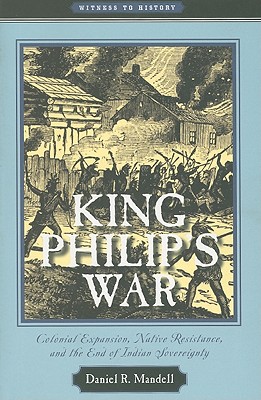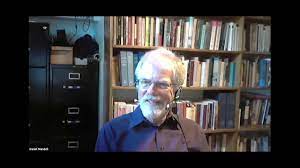

 Johns Hopkins University Press
Johns Hopkins University Press
King Philip's War: Colonial Expansion, Native Resistance, and the End of Indian Sovereignty


Key Metrics
- Daniel R Mandell
- Johns Hopkins University Press
- Paperback
- 9780801896286
- 8.92 X 6.04 X 0.51 inches
- 0.54 pounds
- History > United States - Colonial Period (1600-1775)
- English
 Secure Transaction
Secure TransactionBook Description
King Philip's War was the most devastating conflict between Europeans and Native Americans in the 1600s. In this incisive account, award-winning author Daniel R. Mandell puts the war into its rich historical context.
The war erupted in July 1675, after years of growing tension between Plymouth and the Wampanoag sachem Metacom, also known as Philip. Metacom's warriors attacked nearby Swansea, and within months the bloody conflict spread west and erupted in Maine. Native forces ambushed militia detachments and burned towns, driving the colonists back toward Boston. But by late spring 1676, the tide had turned: the colonists fought more effectively and enlisted Native allies while from the west the feared Mohawks attacked Metacom's forces. Thousands of Natives starved, fled the region, surrendered (often to be executed or sold into slavery), or, like Metacom, were hunted down and killed.
Mandell explores how decades of colonial expansion and encroachments on Indian sovereignty caused the war and how Metacom sought to enlist the aid of other tribes against the colonists even as Plymouth pressured the Wampanoags to join them. He narrates the colonists' many defeats and growing desperation; the severe shortages the Indians faced during the brutal winter; the collapse of Native unity; and the final hunt for Metacom. In the process, Mandell reveals the complex and shifting relationships among the Native tribes and colonists and explains why the war effectively ended sovereignty for Indians in New England.
This fast-paced history incorporates the most recent scholarship on the region and features nine new maps and a bibliographic essay about Native-Anglo relations.
Author Bio
Daniel Mandell has been on the Truman faculty since 1999, teaching early America, Native American history, and the history of American law. His book The Lost Tradition of Economic Equality in America, 1600-1870, will be published by Johns Hopkins University Press in spring 2020.
In 2018-2019, Prof. Mandell was Distinguished Research Fellow at the Kinder Institute on Constitutional Democracy at the University of Missouri, beginning a study of the conundrum between individual and collective rights in the U.S. highlighted by the evolution of Native American policies and laws.
In 2016, Mandell received the Distinguished Literary Achievement award from the Missouri Humanities Council in recognition of his many publications on Native Americans in New England between 1600 and 1900. King Philip’s War: Colonial Expansion, Native Resistance, and the End of Indian Sovereignty (Johns Hopkins University Press, 2010) was named an “Outstanding Academic Title” by the American Library Association’s Choice magazine. Tribe, Race, History: Native Americans in Southern New England, 1780-1880 (Johns Hopkins University Press, 2008), was given the inaugural Lawrence Levine Award in 2008 by the Organization of American Historians for the best book on American cultural history. He has also written King Philip’s War: The Conflict Over New England (Chelsea House Publications, 2007); the Northern and Western New England Treaties and Southern New England Treaties volumes (nos. 19 and 20) in the series Early American Indian Documents: Treaties and Laws (University Press of America, 2003); and Behind the Frontier: Indians in Eighteenth-Century Eastern Massachusetts (University of Nebraska Press, 1996). Prof. Mandell has also published various articles in edited collections, encyclopedias, and journals including the Journal of American History and the William and Mary Quarterly.
Mandell earned his doctorate and masters degrees in History from the University of Virginia, and a masters degree in Urban and Environmental Policy from Tufts University. He has received research fellowships from the National Endowment for the Humanities and various other agencies. He is an elected member of: the American Antiquarian Society, a scholarly society and research library over 200 years old that holds the largest collection of materials printed in North America; the Massachusetts Historical Society, the oldest historical research society in the United States; and the Colonial Society of Massachusetts.
Source: Truman University
Community reviews
Write a ReviewNo Community reviews



